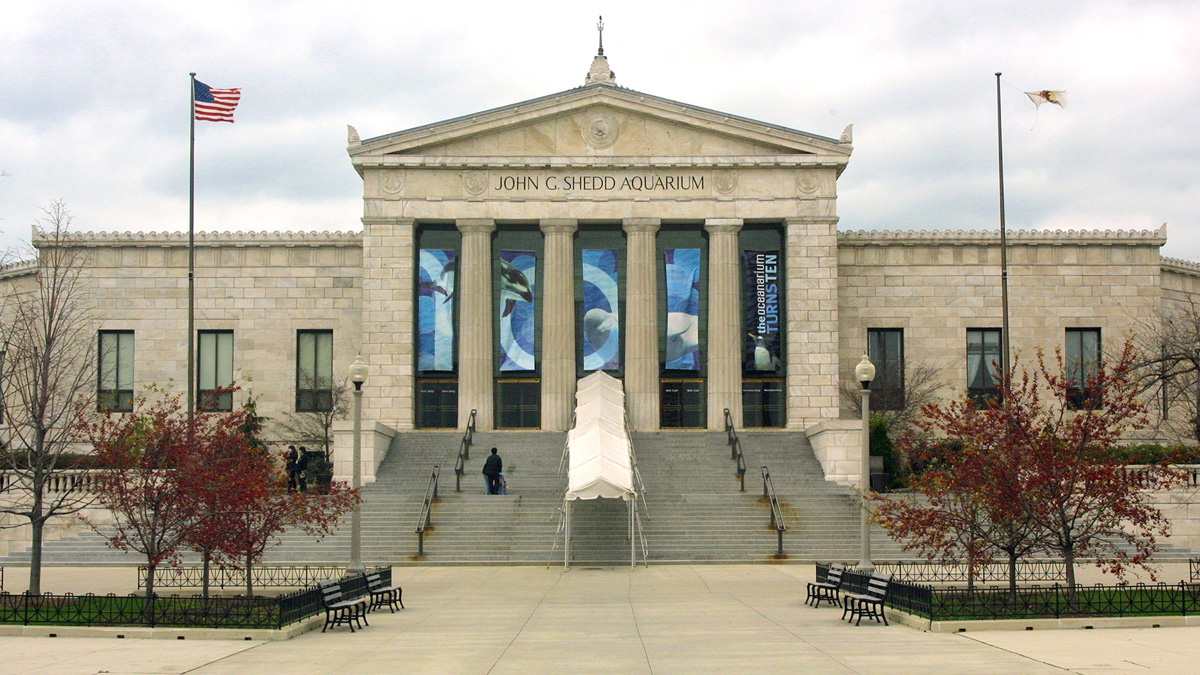The Chicago Auto Show is returning to the city this summer for the first time in more than a year, officials have announced.
Illinois Gov. J.B. Pritzker and Chicago Mayor Lori Lightfoot together announced the show's return Tuesday, noting it will be the first large convention to take place in Chicago since the COVID-19 pandemic began.
The Chicago Auto Show will take place from July 15 through July 19 this year, officials said, shorter than the usual nine-day run that takes place in the winter. It will also be held both indoors and outdoors for the first time since it started in Chicago in 1901, officials said.
Other safety measures that will be put in place include: a move to Hall F in West Building, timed entrance windows and staggered entry to prevent congestion, a face mask requirement at all times, sanitization stations, contactless delivery for tickets, a temperature scan and medical questionnaire before entry and more.
Feeling out of the loop? We'll catch you up on the Chicago news you need to know. Sign up for the weekly Chicago Catch-Up newsletter here.
"Around this time last year, McCormick Place was turned an alternate care facility that significantly aided our city during the first wave of COVID-19—making today's announcement all the more special," Lightfoot said in a statement. "In the same spirit of collaboration between government, healthcare, community, and corporate partners, we are now able to bring conventions back to our beloved convention center in a way that is safe and reflective of our progress in slowing and stopping the spread of this virus."
"“With strong public health protocols in place, the Chicago Auto Show will be the first large convention to take place in Illinois since the onset of the COVID-19 pandemic, setting the stage for the safe return of big events in the months to come,” Pritzker added. “The lifesaving power of vaccinations and the hard work by the people of our city and state has led us here. In recent weeks, we have seen our statewide COVID case rates and hospitalizations flatten and begin to fall, demonstrating a surge far short of the one we saw over the fall and winter. To be clear, our fight against the virus isn’t over yet – but things are getting better.”
The Chicago Auto Show was originally slated to be held in mid-February, but organizers postponed the event late last year as the pandemic continued, noting that they hoped to hold the show later in the year.
Local
The 2020 Chicago Auto Show was held just one month before stay-at-home orders went into effect across the country, as the coronavirus began to rapidly spread in the U.S. Since then, all manner of shows were canceled at McCormick Place and other event venues. The show's return to Chicago in July will mark the first large-scale event at the city's main convention space.
The auto show announcement came days after Chicago announced changes to its reopening plan, increasing capacity limits and allowing for a return of fans to the United Center and more as the city's COVID metrics improve and vaccinations increase.
Lightfoot announced the following changes on Thursday, which took effect immediately:
- Restaurants and bars: Indoor capacity can increase to the lesser of 50% or 100 people.
- Spectator events, theater, and performing arts: Large indoor venues, including the United Center, can now operate at 25% capacity.
- Meetings, conferences, and conventions: Large indoor venues can now operate at the lesser of 25% or 250 people.
- Places of worship: Large indoor venues can now operate at 25% capacity.
- Festivals and general admission outdoor spectator events: Operate at 15 people per 1,000 sq. ft.
- Flea and farmers markets: Operate at 25% capacity or 15 people per 1,000 sq. ft.
Chicago officials also announced last week that if the city's reopening metrics "remain stable or continue to decrease for the next two weeks" and the city reaches criteria set by the state, Chicago will join Illinois in moving to the state's new Bridge Phase.
The Bridge Phase, unveiled in March, would allow for higher capacity limits at places like museums, zoos and spectator events as well as increased business operations during a transitional period between the current Phase 4 guidelines and a full reopening in Phase 5.
In order for Illinois to advance to the Bridge Phase, the entire state must reach a 70% first-dose vaccination rate for residents 65 and older, in addition to maintain the current required metrics of at least 20% ICU beds availability and holding steady on hospitalizations for COVID-19 or COVID-like illnesses, mortality rates and case rates over a 28-day monitoring period.
While the state has since reached the vaccination metrics required to advance from Phase 4 to the Bridge Phase, increases in COVID-19 cases and hospitalizations have prevented the state from moving into the new phase.
Pritzker said Monday that the state could move to the Bridge Phase potentially as early as next week.
“If you look at all the hospital admissions data, it looks like we’re in decent shape and moving toward the Bridge Phase,” he said. “I believe that it may be next week.”
But a spokeswoman for the Illinois Department of Public Health said Monday that it is “difficult to estimate” when the state will move forward to the Bridge Phase, and that there are still several metrics that officials are watching.
“Right now the metric that is holding the state back is the number of people hospitalized with COVID-19,” Melaney Arnold said in a statement. “We have seen several days where the number of people in hospitals has decreased, indicating that we could move to the Bridge Phase, but it’s still a fluid situation.”
Arnold says that the state is also closely monitoring the mortality rate among COVID-19 patients, with a recent increase in deaths giving state health officials some cause for concern.
“We know that hospitalizations and deaths are lagging indicators, and are likely a reflection of the recent increases in cases,” Arnold said.



